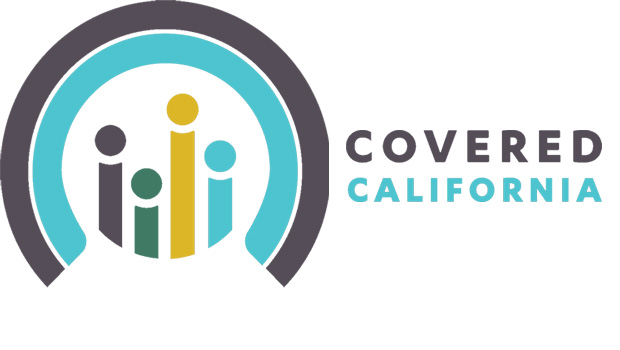Answer
The Affordable Care Act, also known as "Obamacare", was passed by President Barack Obama on March 23, 2010 and became federal law along with all other state laws passed to put it in place. These laws are intended to provide people with affordable health care coverage and better medical care. Some of these changes and benefits have already been incorporated into the current health care system. For example, young adults aged 26 and under, regardless of marital status, can be enrolled as dependents under their parent's health care plan. This act minimizes the financial burden on newly independent and financially unstable young adults. In addition, annual or lifetime limits no longer apply to essential health benefits. Instead, insurance companies will cover all costs after out-of-pocket-maximums are met. Also, annual check ups or expanded no-cost preventive care such as immunizations, diabetes checkups, cancer screenings, counseling for substance abuse, and more are included.
Most importantly, starting 2014 under Obamacare, insurance companies can no longer deny coverage due to an applicant's pre-existing health condition.
Answer
Starting January 1, 2014 Obamacare requires U.S. citizens and legal immigrants to maintain a basic level of health coverage. If you do not buy coverage and go without it for three months or longer, you will be charged a tax penalty by the government. (If you lack coverage for religious reasons or financial difficulties you will not be charged a penalty and may qualify for government assistance in obtaining insurance)
Answer
Marketplace, also known as "Exchange", will be a state or federal run website where many people can buy health care coverage. This website has already been established in the State of California and is being called Covered California (www.coveredca.com). The Marketplace will be open for enrollment on October 1, 2013, for coverage beginning January 1, 2014, or later. The Marketplace will also operate a Small Business Health Options Program (SHOP). This program will serve small businesses that have 1 to 50 eligible employees. Small employers can purchase a variety of plans and allow its employees to choose from their selected plans or from all other eligible plans. Covered California will start enrolling businesses with 1 to 99 full time employees in October 2015 for coverage begins in January 2016.
Answer
The Affordable Care Act specifically states that an employer with at least 50 full time equivalent employees must provide its employees with health insurance or pay a penalty. If however, an employer only has 24 employees or fewer, they are not required to offer health insurance, but if they do they will receive tax breaks or tax credits from the government. This acts as an incentive to encourage small businesses to provide health insurance to its employees as a fringe benefit, which may also help with employee retention.
Any self-employed, or small businesses without employees are not subject to the mandatory statutes stated above and will not receive tax credits. Conversely, small businesses with more than 25 but less than 50 employees are also not subject to the mandatory statues above and will not receive tax credits either. If however these business owners want to provide coverage to their employees, they can still use SHOP Exchange to purchase health care coverage.
Answer
A small business that has less than 25 employees is eligible to receive up to 35% in tax credits (tax-exempt groups can receive up to 25% in tax credits). In 2014, this tax credit goes up to 50% (35% for tax-exempt groups). Qualified small businesses must pay at least 50% of the health coverage cost of each employee. A small business that has more than 25 employees and has average employee wage of $50,000 or more does not qualify for the tax credit. Small businesses must purchase health insurance for at least two years to be able to qualify for these tax credits.
Answer
The fact is small business owners may have a financial burden in providing coverage for themselves and their employees due to rising health insurance costs. Obamacare actually helps most small businesses, while bigger businesses remain unaffected. Today almost half of America's uninsured is small business owners, employees or their dependents. Since Obamacare provides small businesses with affordable insurance options and cost assistance, via the SHOP exchange, its safe to say most small businesses will not be hurt by Obamacare, but will in fact benefit.
Answer
The Obamacare small business Medicare tax hike is a 0.9% increases to the current Medicare part A tax. Small businesses making under $250,000 in taxable profit don't have to pay this Obamacare small business tax increase. Taxable income is defined as any profit above and beyond expenses, tax credits provided by Obamacare for insuring employees are also considered as taxable income. Small businesses making over $250,000 in taxable income consist of 3% of small businesses in the US. It is certain that the Obamacare tax increases will not affect your small business.
Answer
No, not necessarily. The Marketplace (Exchange) is just one of many ways people can shop for health care coverage. People can still get health care coverage through their employers or through an insurance agent. However, they will have to buy coverage through the Marketplace to apply for subsidized coverage.
Advice from DP Insurance:
Many insurance carriers' advertisements about their plans and services are seemingly attractive, but as an experienced insurance broker, we suggest you to come to us for your insurance needs instead of dealing with them directly because:
- Unlike insurance carriers who only look after their own plans, we have access to multiple insurance carriers' plans and are able to compare them and choose the best one for you.
- We can help you convert your total part time employees to a full time equivalent total.
We are happy to assist you with choosing the most suitable plan for your insurance needs and helping you to save money and time. Please feel free to contact us at anytime for questions regarding Obamacare.

